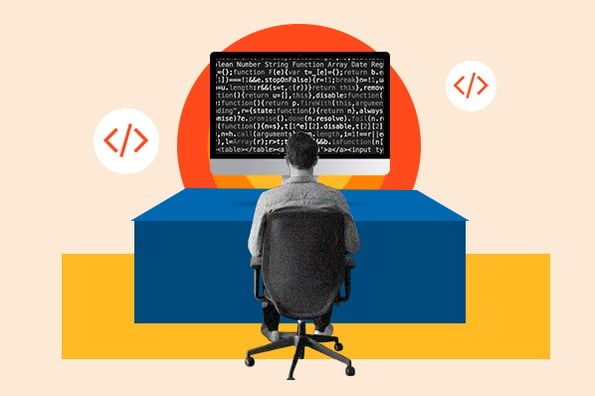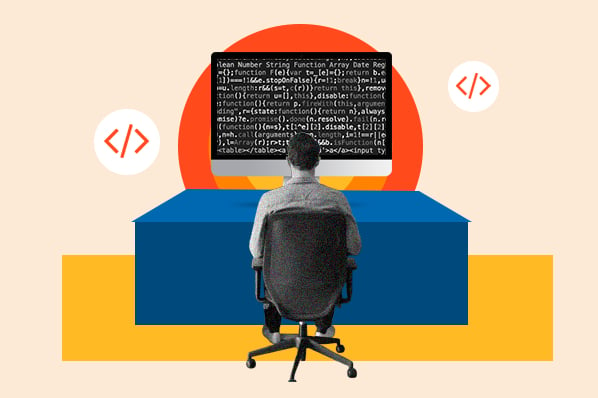Computer programming is the process of designing and building an executable computer program. It involves analysis, generating algorithms, profiling algorithms’ accuracy, and resource consumption. Dive into coding mastery with ‘Computer Programming Essentials.’ Explore key concepts and techniques to navigate the coding world with confidence. Whether you’re a beginner or enhancing your skills, join us on this journey!
At its core, computer programming enables us to give instructions to a computer in a language the machine understands. These instructions, known as code, are written in different programming languages like Python, Java, and C++. Effective coding requires creativity, problem-solving skills, and technical knowledge.
Mastering computer programming unlocks the potential to create software, solve complex problems, and innovate in virtually any industry. Whether used for developing apps, analyzing data, automating tasks, or building operating systems, programming is the backbone of our digital world. As a pivotal skill for the future, programming literacy is increasingly valuable and widely taught across educational and professional institutions. It’s a field that promises continual growth, perpetual learning opportunities, and an evolving landscape of challenges and achievements.
Understanding Computer Programming Basics
Computer programming is essential for creating software and applications. It is like giving instructions to a computer. Programmers write these instructions using languages computers understand.
Programming languages come in various forms. Each one has specific purposes and uses. Like human languages, they communicate tasks to computers.
- Variables store information for programs.
- Data Types indicate what kind of data variables hold.
- Algorithms are step-by-step instructions for solving problems.
The programming process starts with writing code. After writing code, it must be compiled to run on a computer. Testing then checks for errors. Fixing errors is called debugging.

Credit: blog.hubspot.com
Setting Up The Development Environment
Setting up a development environment requires careful selection of the right tools. Integrated Development Environments (IDEs) and text editors are fundamental for coding success. Choose a text editor like Sublime Text or an IDE like Visual Studio based on your needs.
For essential software, beginners can start with Python or JavaScript. These languages are widely used and have vast communities. Set up a dedicated workspace on your computer to keep projects organized.
Version control systems like Git help you track changes. They allow collaboration with others. Sign up on GitHub to share your code. Explore online resources such as Codecademy or HackerRank to practice coding challenges. Engage with coding communities and improve your skills regularly.
Best Practices For Writing Clean And Efficient Code
Writing clean and efficient code is crucial for developers. Adhering to coding standards ensures consistency. Using common conventions makes code understandable to others. This practice helps in maintaining and scaling the project.
Good documentation is like a manual for your code. Proper documentation helps others to grasp what’s happening quickly. This is essential for future updates or team collaboration.
Optimization techniques lead to better performance. Refactoring improves the structure without changing the functionality. Regularly refining code reduces complexity and eliminates redundancies.
Testing is vital for reliable software. Different tests check various parts. Unit tests inspect individual pieces. Integration tests ensure parts work together. Test-Driven Development (TDD) involves writing tests before code. This guarantees that every feature is tested.

Credit: www.udacity.com
Advanced Programming Topics To Master
Deep diving into Object-Oriented Programming (OOP) is a must to gain expertise in Computer Programming. Design patterns, like Factory or Singleton, optimize OOP efficiency and maintainability.
Frameworks and libraries reduce development time. They offer pre-built components for faster application building. Examples include React for the front end and Django for the back end.
Linking applications to databases involves Database Connectivity and proficiency in SQL. SQL Programming enables data manipulation and retrieval, which is critical for today’s data-driven needs.
Web Development splits into front-end and backend. Critical skills encompass HTML, CSS, and JavaScript for the front end and languages like Java, Python, or Ruby for the back end.
Building Projects And Nurturing A Developer Mindset
Starting personal programming projects can be daunting. Yet, breaking them into smaller tasks makes them manageable. Begin by outlining your idea and setting achievable milestones.
Contributing to open-source projects enhances your skills. It’s a way to gain practical experience and give back to the developer community. Choose a project that resonates with your interests and dive in!
Don’t fly solo; join developer forums or local tech groups. These platforms offer chances to collaborate, seek help, and share your insights. Peer learning is a vital tool in your developmental arsenal.
Technology evolves rapidly. Stay updated with the latest programming trends and languages. Online courses, webinars, and tech podcasts are valuable resources. Commit to lifelong learning to stay relevant in this field.

Credit: blog.hubspot.com
Frequently Asked Questions On Computer Programming
What Is In Computer Programming?
Computer programming involves writing code to create software applications, control hardware, and solve problems. It’s a process that translates algorithms and instructions into computer-readable language.
What Are The 4 Types Of Programming?
The four types of programming are imperative, functional, logical, and object-oriented. Each offers unique approaches to creating software solutions.
How Much Do Programmers Make?
Programmer salaries vary widely, averaging from $50,000 to $100,000 annually. Factors like experience, location, and specialization significantly influence income.
Does Computer Programming Pay Well?
Yes, computer programming typically offers competitive salaries. Industry demand often translates to above-average pay for skilled programmers.
Conclusion
Embarking on the journey of computer programming opens doors to endless possibilities. It’s a skill that sharpens with practice and dedication. Remember, every expert programmer once faced a blank IDE. So, keep coding, stay curious, and embrace the challenges ahead.
Your digital creations await!